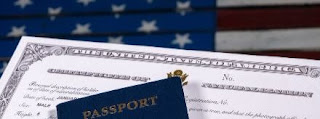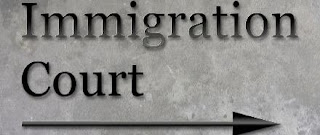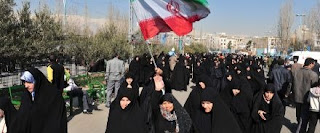INTRODUCTION
On December 11, 2017, the U.S. Department of State (DOS) published the Immigrant Visa Bulletin for January 2018 [
PDF version]. The visa bulletin contains filing dates and final action dates for the family-sponsored and employment-based immigrant visa preference categories. On December 15, 2017, the United States Citizenship and Immigration Services (USCIS) determined that beneficiaries of approved family-sponsored preference petitions must use the filing dates for applying for adjustment of status in January 2018 [
PDF version]. Conversely, USCIS determined that beneficiaries of approved employment-based petitions must use the final action dates for applying for adjustment of status in January 2018.
In this article, we will examine the relevant charts provided by the DOS and the USCIS for immigrant visa applicants and adjustment of status applicants in January 2018. Furthermore, we will provide an overview of the news and notes included with the January 2018 visa bulletin from DOS.
Please see our full articles to learn about how to use the immigrant visa bulletin as an adjustment of status applicant [
see article] and the differences between the final action dates and filing dates [
see article].
To see how the visa bulletins have progressed over the current fiscal year, please see our index of visa bulletin articles [
see article].
FAMILY-SPONSORED CASES
As we noted, the USCIS has determined that those applying for adjustment of status based on approved family-sponsored immigrant visa petitions must use the filing dates from the January 2018 visa bulletin. This is good news for family-sponsored applicants because the filing dates are generally more favorable to applicants than the final action dates.
In order for the beneficiary of an approved family-sponsored immigrant visa petition to be eligible to apply for adjustment of status in January 2018 (if otherwise eligible, of course), he or she must have a priority date that is earlier than the applicable filing date for his or her preference category and chargeability area. An applicant's priority date will generally be the date on which his or her immigrant visa petition was properly filed with the USCIS.
The following chart [
see here] lists the filing dates for family-sponsored cases for January 2018.
For your reference, the following chart [
see here] contains the final action dates for family-sponsored cases in 2018.
Although family-sponsored adjustment applicants must use the filing dates in January 2018, it is likely that the USCIS will determine that it is necessary for family-sponsored applicants to use the final action dates later in fiscal year 2018.
EMPLOYMENT-BASED CASES
The USCIS determined that beneficiaries of approved employment-based immigrant visa petitions must use the final action dates from the January 2018 visa bulleting for applying for adjustment of status. Employment-based applicants have been required to use the final action dates for every month in fiscal year 2018, and that trend is likely to persist through the end of the fiscal year next September.
Accordingly, the beneficiary of an approved employment-based petition may apply for adjustment (if otherwise eligible) only if his or her priority date is before the applicable final action cutoff date for his or her preference category and chargeability area. If labor certification was required for the petition, the priority date will usually be on the date on which the labor certification application was approved by the U.S. Department of Labor. For petitions for which labor certification was not required, the priority date will generally be the date on which the petition was properly filed with the USCIS.
The following chart [
see here], courtesy of USCIS, contains the final action dates for employment-based cases in January 2018.
SCHEDULED EXPIRATION
The January 2018 visa bulletin's guidance on categories listed as “unavailable” is outdated. In this section, we will explain the current situation with the most up-to-date information.
The categories for employment-fourth preference certain religious workers (SR) and employment fifth preference investors (I5 and R5) are scheduled to expire unless they are extended by congress. These extensions are intertwined with passing legislation to extend funding of federal government operations. Regular readers of our blog and those otherwise interested in the affected categories will note that this issue has arisen regularly over the past couple of years.
The visa bulletin states that on December 7, 2017, President Donald Trump signed a continuing resolution, passed by Congress, to extend government funding through December 21, 2017. Accordingly, it states that no SR or IR/R5 visas could be issued after midnight, December 21, 2017.
However, subsequent to the issuance of the January 2018 visa bulletin, President Trump signed another continuing resolution passed by the Senate on December 21. This new continuing resolution funds the government through January 19, 2018. This extension also includes the SR, I5, and R5 categories.
What does this mean for beneficiaries of approved SR, I5, and R5 petitions? Assuming a new extension is not signed, the DOS may issue visas for SR beneficiaries until midnight, January 18, 2017. Furthermore, SR non-minister special immigrants must be admitted into the United States no later than midnight January 18. The DOS may issue I5 and R5 visas until the close of business on January 19, 2018. These same provisions apply to adjustment of status.
If a new government funding bill is signed prior to January 19, 2018, there will be no point at which visas in the SR, I5, and R5 categories become unavailable. Furthermore, if legislation is passed after January 19, the visas would become available after a gap period.
The DOS states that in the SR category, the final action date is current for January for all countries except El Salvador, Guatemala, and Honduras (Dec. 1, 2015 final action date) and Mexico (June 1, 2016 final action date), until January 19 (and after if they are extended). The final action dates for I5/R5 are current for every country except China-mainland born (July 22, 2014 final action date).
While it is perhaps more likely than not that the SR, I5, and R5 will be extended prior to their expiration, it is important to remember that the question is an ancillary issue in the broader budget negotiations for the entire U.S. government. It is certainly not beyond the realm of possibility that there will be a gap in the authorization of these three important programs. Those who may be eligible for visas/status in these categories in January 2018, whether through consular processing or adjustment of status, should consult with an experienced immigration attorney for case-specific guidance. We will update the website with information on the situation regarding these three categories as it becomes available.
SPECIAL IMMIGRANT TRANSLATORS
The DOS stated that it is holding the January Final Action Date for special immigrant (SI) translator category visas at April 1, 2010. It continues to expect to reach the annual limit of 50 visas in this category early in the fiscal year. At that time, the final action date in the SI translator category will become “unavailable.” The SQ special immigrant visa category for certain Iraqi and Afghan nationals employed by or on behalf of the U.S. government in Iraq or Afghanistan remains current.
REPORT ON NUMBER OF IMMIGRANT VISA APPLICANTS REGISTERED IN PREFERENCE CATEGORIES AS OF 11/1/17
The National Visa Center released a report on the number of applicants registered in the various preference categories for processing at overseas posts as of November 11, 2017. We have included the PDF for those who are interested [
PDF version].
CONCLUSION
It is important for those seeking status in one of the family-sponsored or employment-based preference categories to stay abreast of developments in the visa bulletin, and especially so for those who intend to apply for adjustment of status. In general, those seeking immigrant visas or adjustment of status should consult with an experienced immigration attorney throughout the entire process for case-specific guidance. Regarding the January 2018 visa bulletin, this is particularly important for those seeking visas or adjustment in the SR, I5, and R5 employment-based preference categories.
Please visit the
nyc immigration lawyers website for further information. The Law Offices of Grinberg & Segal, PLLC focuses vast segment of its practice on immigration law. This steadfast dedication has resulted in thousands of immigrants throughout the United States.













